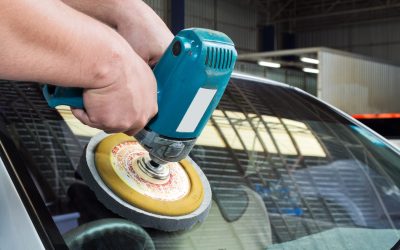In many industries, air compressors play a pivotal role in daily operations. However, not all air compressors are created equal, and the efficiency of your operations may hinge on the type of compressor you use. A reciprocating air compressor offers several advantages over other types, particularly for specific applications that require high pressures and reliability. Here are five signs that indicate it might be time to upgrade to a reciprocating air compressor.
- Frequent Breakdowns and Maintenance Issues
If your current air compressor frequently breaks down or requires constant maintenance, it could be a sign that your equipment is no longer suitable for your needs. Reciprocating air compressors are known for their durability and longevity, making them a reliable choice for demanding environments. Upgrading to this type of compressor can reduce downtime and maintenance costs.
- Insufficient Air Supply
Another clear sign you might need to upgrade is if your current compressor can’t keep up with the air demand of your operations. Reciprocating air compressors are excellent for delivering high-pressure outputs essential in operations like automotive and manufacturing. If you notice your tools and machinery aren’t performing optimally due to insufficient air supply, consider this upgrade.
- High Energy Costs
Operating an inefficient air compressor can lead to high energy costs. Reciprocating compressors are generally more energy-efficient than older or less advanced models, particularly when they’re well-maintained and properly sized for your operations. If you’re noticing a spike in your energy bills, the efficiency of a reciprocating air compressor might help alleviate some of those costs.
- Need for Better Air Quality
The quality of air produced by your compressor can significantly impact your operations, especially in industries where air purity is critical, such as pharmaceuticals or food and beverage. Reciprocating air compressors often provide better control over air quality. If your current system is contaminating your air supply or can’t filter out impurities effectively, upgrading could be crucial.
- Expansion of Business or Operational Capacity
As your business grows, so does the demand for compressed air. If you’re expanding your operations, or if new tools and machinery are added to your production line, your current compressor might not suffice. A reciprocating air compressor can be scaled more effectively to meet increased demands, ensuring that your expansion is supported by reliable and efficient compressed air supply.
Conclusion
Recognizing the need to upgrade to a reciprocating air compressor can save you from future headaches and unforeseen costs. Whether it’s due to frequent maintenance issues, insufficient air supply, high energy costs, the need for better air quality, or simply an expansion of your business, understanding these signs can help you make an informed decision. Upgrading to a reciprocating air compressor offers numerous benefits, including improved reliability, efficiency, and capacity to meet the demands of your growing business.



